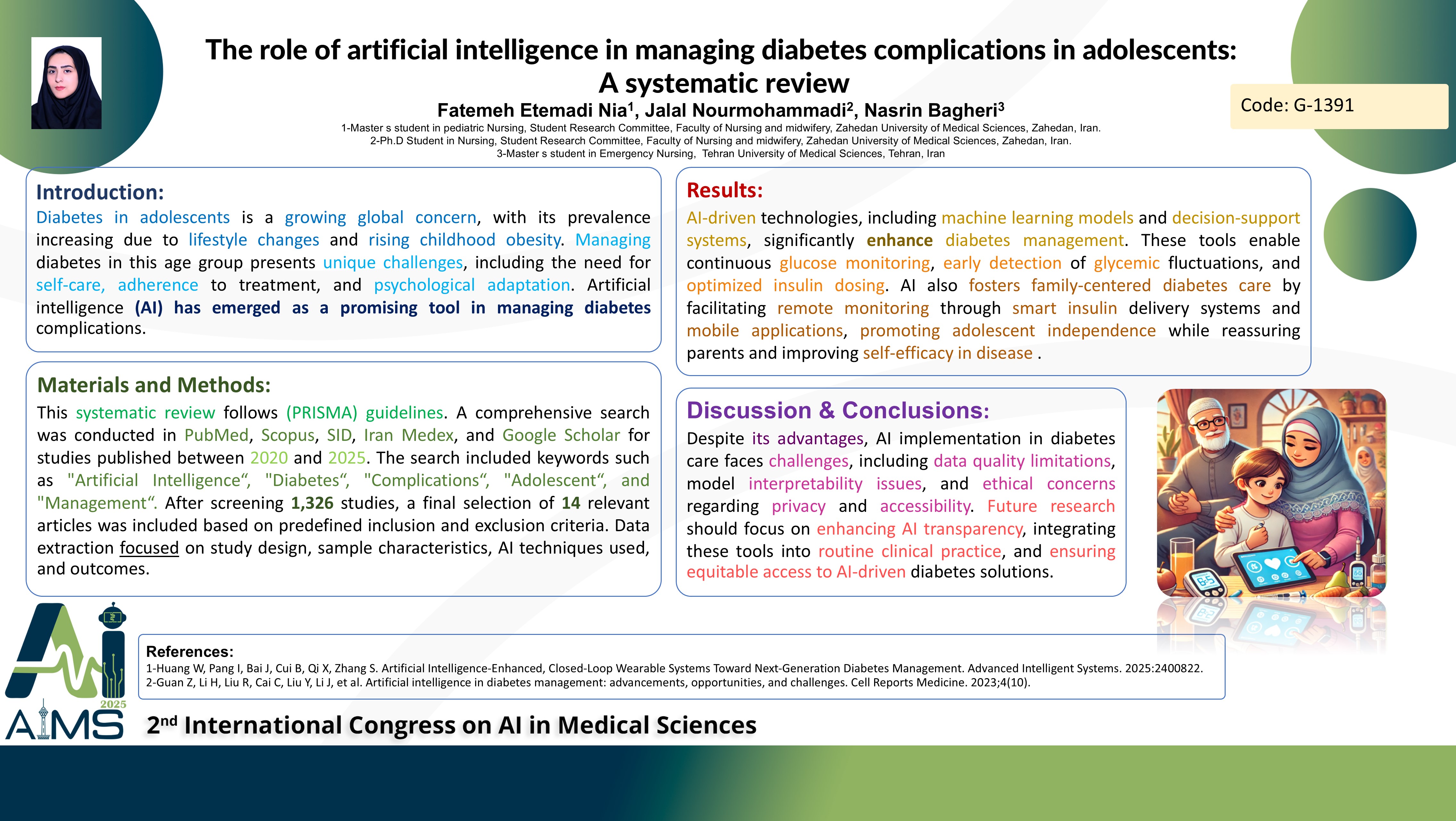نقش هوش مصنوعی در مدیریت عوارض دیابت در نوجوانان : یک مرور سیستماتیک
کد: G-1391
نویسندگان: Fatemeh Etemadi Nia *, Jalal Nourmohammadi, Nasrin Bagheri ℗
زمان بندی: زمان بندی نشده!
برچسب: سیستم های تصمیم یار بالینی
دانلود: دانلود پوستر
خلاصه مقاله:
خلاصه مقاله
Background: Diabetes in adolescents is a growing global concern, with its prevalence increasing due to lifestyle changes and rising childhood obesity. Managing diabetes in this age group presents unique challenges, including the need for self-care, adherence to treatment, and psychological adaptation. Artificial intelligence (AI) has emerged as a promising tool in managing diabetes complications. Methods: This systematic review follows the Preferred Reporting Items for Systematic Reviews and Meta-Analyses (PRISMA) guidelines. A comprehensive search was conducted in PubMed, Scopus, SID, IranMedex, and Google Scholar for studies published between 2020 and 2025. The search included keywords such as **"Artificial Intelligence," "Diabetes," "Complications," "Adolescent," and "Management." After screening 1,326 studies, a final selection of 14 relevant articles was included based on predefined inclusion and exclusion criteria. Data extraction focused on study design, sample characteristics, AI techniques used, and outcomes. Results: AI-driven technologies, including machine learning models and decision-support systems, significantly enhance diabetes management. These tools enable continuous glucose monitoring, early detection of glycemic fluctuations, and optimized insulin dosing. Machine learning algorithms predict hyperglycemia and hypoglycemia using real-time data, allowing timely interventions. Additionally, AI-based tools support personalized diabetes management, reducing cognitive burden and improving self-efficacy in disease control. AI also fosters family-centered diabetes care by facilitating remote monitoring through smart insulin delivery systems and mobile applications, promoting adolescent independence while reassuring parents. Conclusion: Despite its advantages, AI implementation in diabetes care faces challenges, including data quality limitations, model interpretability issues, and ethical concerns regarding privacy and accessibility. Future research should focus on enhancing AI transparency, integrating these tools into routine clinical practice, and ensuring equitable access to AI-driven diabetes solutions.
کلمات کلیدی
Artificial intelligence, Diabetes Complications, Adolescent, Management
